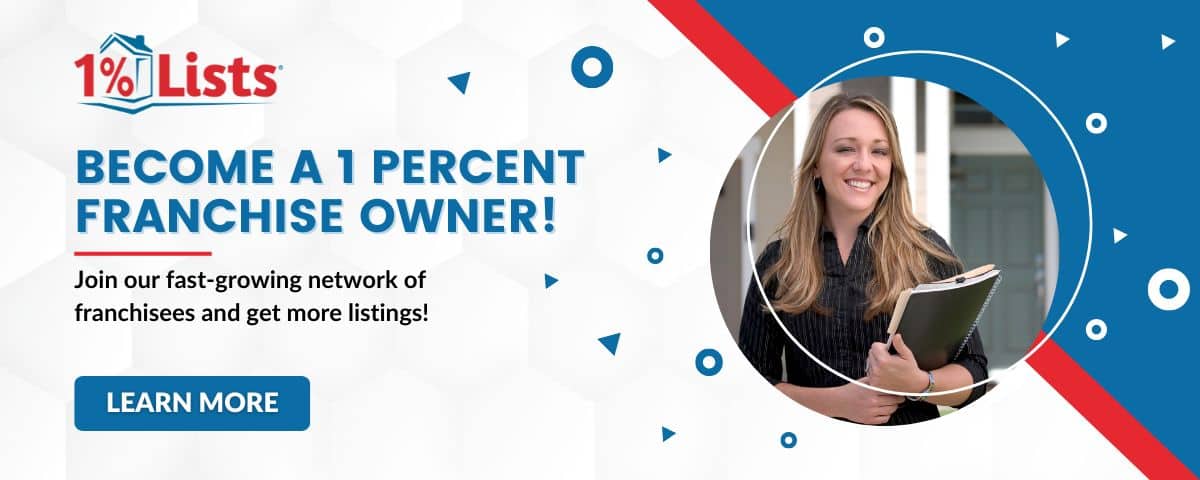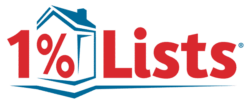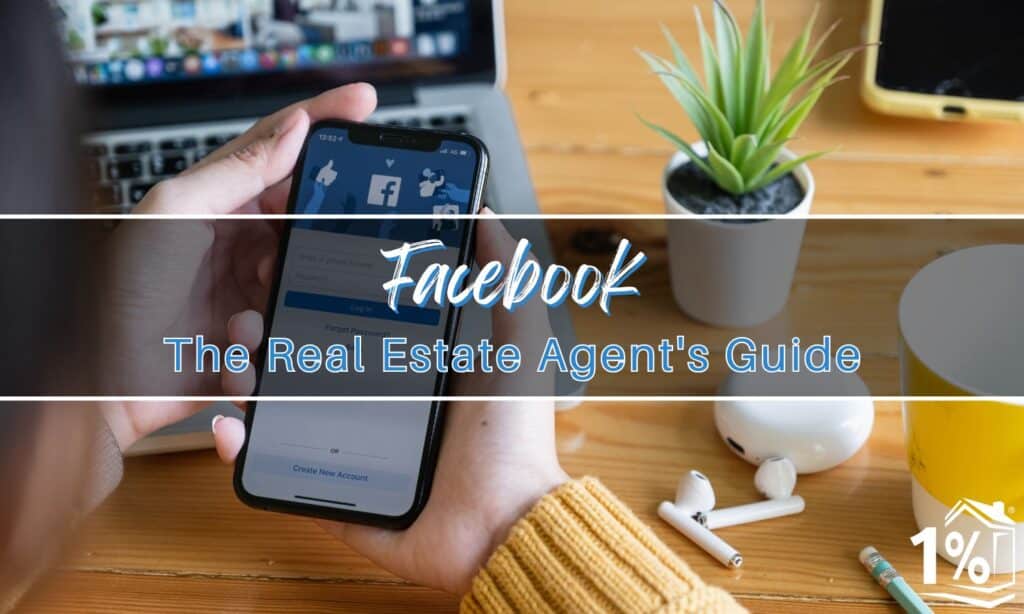In today’s digital world, Facebook remains a cornerstone of online marketing, and for real estate agents, it’s an invaluable tool for growing your business. With billions of active users, Facebook provides an unparalleled platform to showcase properties, connect with potential clients, and establish your brand. Whether you’re sharing stunning property photos, offering expert advice on buying or selling, or engaging with your community, Facebook lets you do it all in a way that’s both affordable and highly targeted.
This guide is designed to help real estate agents harness the full potential of Facebook. From setting up a professional business page to crafting engaging posts and leveraging advanced advertising tools, you’ll find actionable tips to build your online presence, increase engagement, and ultimately drive more leads.
Why Facebook Is a Must-Have Tool for Real Estate Agents
Facebook isn’t just another social media platform; it’s a game-changer for real estate marketing. Here’s why it should be a central part of your strategy:
- Massive Audience Reach: With over 2.9 billion active users, Facebook provides an opportunity to connect with a diverse and extensive audience. Whether your focus is local buyers and sellers or investors from afar, Facebook can help you reach them.
- Cost-Effective Marketing: Compared to traditional advertising like print or television, Facebook offers a highly cost-effective solution. Even with a modest budget, you can achieve results.
- Engagement Opportunities: Facebook fosters two-way communication, making it easy to build trust and rapport with your audience. Whether through comments, direct messages, or interactive posts, you can connect on a personal level.
- Showcasing Properties: As a visually-driven platform, Facebook is ideal for sharing stunning photos, video tours, and 3D walkthroughs of your listings. It’s the perfect place to make properties shine.
By incorporating Facebook into your marketing efforts, you’ll not only expand your reach but also strengthen your brand and foster valuable client relationships.
Setting Up a Professional Facebook Business Page
A Facebook Business Page is your digital storefront, and setting it up correctly is the first step to success. Here’s how to make it professional and impactful:
Step-by-Step Guide
- Create a Business Page: Avoid using a personal profile for business. Facebook Business Pages provide features specifically designed for businesses, such as analytics and advertising tools.
- Add Professional Branding:
- Profile Picture: Use a professional headshot. It can make a bigger difference than you think.
- Cover Photo: Choose an eye-catching image that represents your brand, such as a picturesque home or your real estate team.
- Complete the About Section: Include a concise bio with keywords like “real estate agent,” “homes for sale,” and your service areas.
- Enable a Call-to-Action Button: Use options like “Contact Us,” “Schedule an appointment,” or “Send Message” to encourage user interaction.
- Add Contact Information: Make it easy for clients to reach you by including your phone number, email address, and website.
Tips for Optimization
- Use Keywords: Incorporate SEO-friendly terms in your page description to improve discoverability.
- Add Reviews and Testimonials: Ask happy clients to leave reviews on your page. Positive testimonials build trust and credibility.
- Keep It Updated: Regularly update your page with new listings, market insights, and local news.
A well-optimized Facebook Business Page sets the foundation for building a strong online presence and connecting with your target audience effectively.

Best Practices for Posting Content
Once your Facebook Business Page is set up, the next step is to create engaging and valuable content. The right mix of content types will help you connect with your audience, showcase your expertise, and keep your followers coming back for more.
Content Types to Share
- Property Listings: Use professional photos, videos, or 3D tours to highlight homes. Include key details like price, location, and unique features.
- Educational Content: Share tips for homebuyers and sellers, such as “How do Real Estate Commissions Work” or “How to Stage Your Home for a Quick Sale.”
- Market Updates: Provide insights into local real estate trends, such as average home prices or time on market.
- Client Testimonials: Post success stories from satisfied clients to build credibility.
- Community Involvement: Showcase your involvement in local events or charities to establish a personal connection with your audience.
Posting Frequency
Consistency is key to staying relevant on Facebook. Aim to post at least 3–5 times per week. Use scheduling tools like Meta Business Suite to plan posts in advance and ensure regular activity.
Timing Matters
Post when your audience is most active. For many real estate agents, early mornings (7–9 a.m.) and evenings (6–9 p.m.) are peak engagement times. Experiment with posting at different times to find what works best for your audience.
Strategies to Increase Engagement
Engagement is the lifeblood of your Facebook presence. The more your followers interact with your content, the wider your reach will be. Here are proven strategies to boost engagement:
Interactive Posts
- Polls and Questions: Ask fun or thought-provoking questions like, “What’s the one feature your dream home must have?”
- Caption Contests: Post a unique property photo and invite followers to suggest captions.
- Quizzes: Create simple quizzes like “What Type of Home Matches Your Personality?”
Encourage Comments and Shares
- Include a clear call to action in your posts, such as “Tag a friend who’s looking for a home in [area]!” or “Share this post if you love this kitchen design.”
- Respond promptly to comments and messages to foster conversations and show your availability.
Leverage Stories and Reels
- Stories: Share quick updates about new listings, open houses, or behind-the-scenes moments.
- Reels: Create short, engaging videos featuring property tours, neighborhood highlights, or real estate tips.

Use Hashtags
- Add hashtags to increase discoverability, such as #RealEstate, #HomeForSale, or #[CityName]Homes. Include a mix of popular and niche hashtags relevant to your target audience.
Also see: How to use Instagram Reels for real estate in 2025.
Leveraging Facebook Ads for Real Estate
Facebook Ads are a powerful way to amplify your marketing efforts and reach potential clients beyond your organic audience. Here’s how to make the most of them:
Types of Facebook Ads
- Boosted Posts: Increase the visibility of posts that are already performing well.
- Lead Generation Ads: Capture contact information from potential clients directly on Facebook with customizable forms.
- Carousel Ads: Showcase multiple properties in one ad with swipeable images or videos.
- Video Ads: Use dynamic, eye-catching videos to highlight property features or explain your services.
Targeting Tips
- Narrow your audience by location, age, and homebuying behaviors.
- Target specific zip codes or neighborhoods to reach clients in your area.
- Use lookalike audiences to find people similar to your past clients.
Ad Budget Recommendations
- Start with a small budget to test different ad formats and targeting options. For example, allocate $5–$10 per day for your first campaign.
- Analyze the results, refine your approach, and increase your budget for successful ads.
Facebook Ads provide an efficient way to generate leads, promote your listings, and position yourself as a go-to real estate agent in your market.
Real Estate-Specific Tips for Facebook Marketing
Real estate is a unique industry, and Facebook offers tools and strategies tailored to your specific needs. By leveraging these, you can stand out and connect meaningfully with your target audience.
Feature Neighborhood Expertise
- Local Content: Share posts about schools, parks, restaurants, and events in the areas where you sell homes.
- Community News: Highlight local developments, such as new businesses or infrastructure projects, to establish yourself as an authority on the neighborhood.
Host Virtual Open Houses
- Facebook Live: Use live streaming to showcase properties in real-time. Answer questions from viewers and provide insights into the property’s best features.
- Behind-the-Scenes Tours: Share informal, unscripted tours of homes to make the experience feel authentic and engaging.
Highlight Property Features
- Before-and-After Photos: Post transformations of staged homes or renovated properties.
- Themed Posts: Focus on specific aspects of a property, like “Top 5 Outdoor Living Spaces in [City].”
Showcase Your Personality
- Introduction Videos: Share short clips about yourself, your real estate journey, and what makes you passionate about helping clients.
- Day-in-the-Life Posts: Offer glimpses into your workday, such as meeting clients or visiting listings, to humanize your brand.

Tracking Success and Adjusting Strategies
Success on Facebook requires ongoing monitoring and adaptation. Use Facebook’s built-in tools to measure your progress and refine your approach.
Facebook Insights
- Track key metrics like post reach, engagement, page likes, and follower growth.
- Analyze which posts perform best and adjust your content strategy accordingly.
Set Clear Goals
- Define what success looks like for you: Is it more followers, increased website traffic, or a higher number of inquiries?
- Break down larger goals into actionable steps, such as “Generate 10 new leads this month.”
A/B Testing
- Experiment with different types of content, ad formats, and posting schedules to find what resonates most with your audience.
- Compare the performance of variations and focus on the strategies that yield the best results.
Stay Updated
- Facebook’s algorithm and features evolve frequently. Keep up with changes to ensure your strategies remain effective.
- Join Facebook groups for real estate agents or digital marketing to exchange tips and learn from peers.
Conclusion
Facebook is more than a social platform—it’s a vital tool for real estate agents looking to grow their business, connect with clients, and showcase their expertise. By setting up a professional business page, creating engaging content, and utilizing advanced tools like Facebook Ads, you can build a strong online presence that drives results.
Start implementing the strategies from this guide today. Focus on small, manageable steps like posting consistently or experimenting with Facebook Live. Over time, you’ll see the benefits of an engaged audience and a thriving real estate business.

